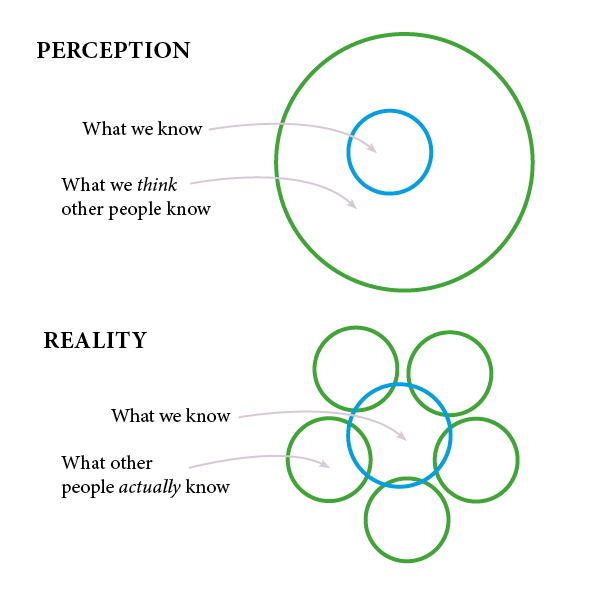We were discussing being ‘experts’ in our field, and how it is unlikely that either of us are ever going to be the preeminent ‘experts’ in our field (leadership and development). It is a thought that faces everyone at some point during their professional and personal careers – that they don’t deserve to be giving advice.
This results in what has come to be known as ‘Imposter Syndrome’ thinking, which is the belief that you aren’t qualified to be giving advice or even having a seat at the table.
What is Imposter Syndrome?
Here is a great visual representation of Imposter Syndrome that really helped me understand this:

In reality, other people know different things to what you know, but they certainly don’t know everything that you know and much much more. It’s just not possible due to different experiences, learnings and ways of life.
As we discussed this back and forth, he said one thing that really resonated with me as I work towards building knowledge and skills in a particular room.
The first piece of advice was:
You are the expert in the room, and you get to choose the room.
You Get to Choose the Room you’re in
Now there is much to be said about not being the smartest person in the room, but this is different. Everyone has pieces of knowledge that others don’t have. This is the truth. You could know more than I do about what seed to plant in the winter or how to create the most well-structured SQL database – I don’t know anything about those two things (among many many more).
So even if you know a tiny amount about either of these, you are the expert and you can teach me.
And that is what counts. If you can add incremental value to the lives of those who are you working with, then in their eyes you are an expert.
It’s often uncomfortable to refer to yourself as an expert, but everyone in this world is better than someone at something.
Be it an air steward on a plane (high pressure serving at 30,000 feet!) or an art restorer, you bring something unique to different situations.
Don’t forget that. Find your room, and pass on your knowledge.



